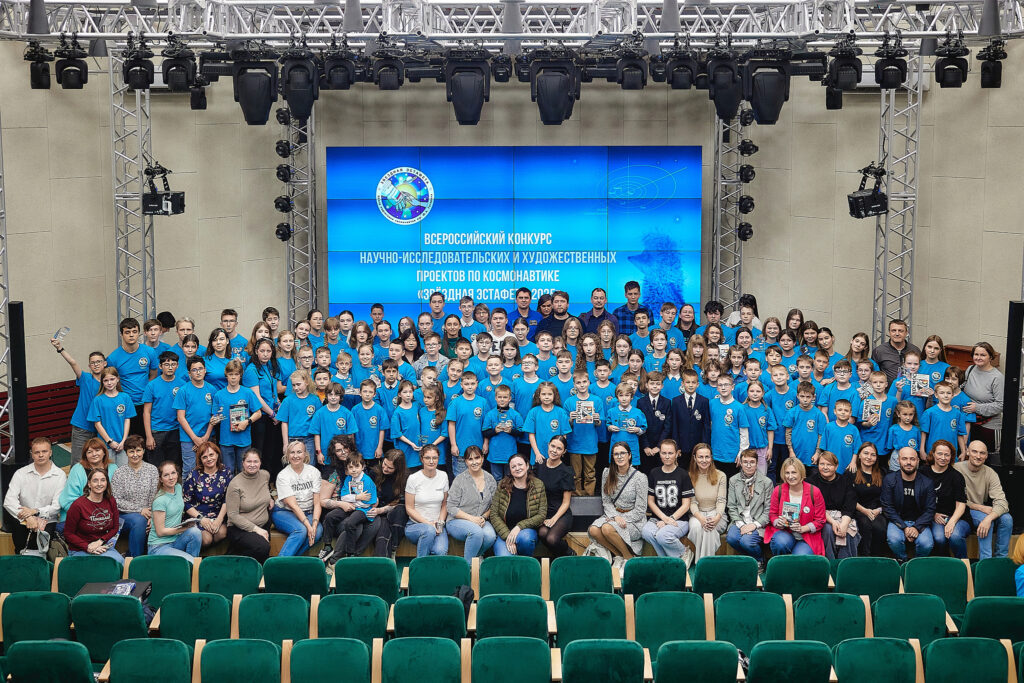Звёздная эстафета — это космический конкурс, который проходит в России уже с 2003 года и даёт возможность прикоснуться к космосу всем детям, от 6 до 18 лет!
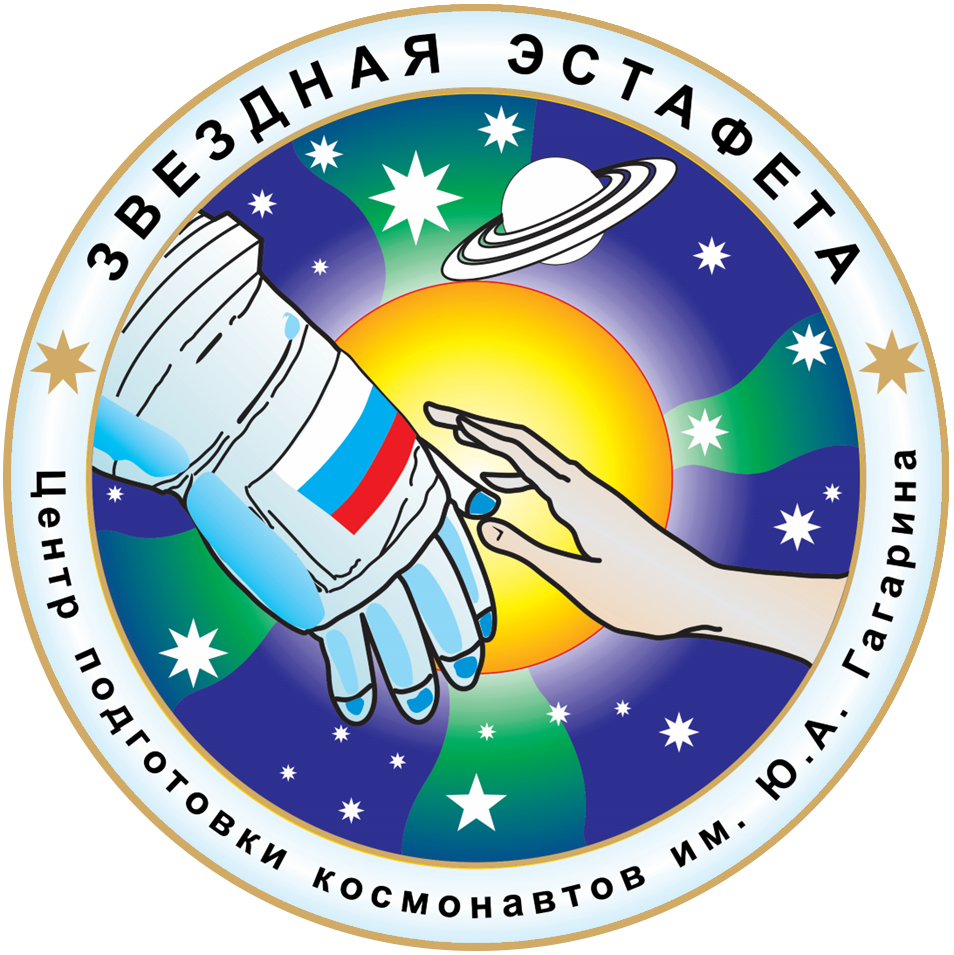
Dedicated to the teacher, senior comrade, scientific adviser and one of the creators of the competition "Star Relay" - Galina Vasilievna Ermolenko (1945-2023), in honor of whom on November 4, 2024 the International Astronomical Union approved the assignment of the name of the asteroid of the main asteroid belt to the asteroid "Star Relay". 545985 GALINAERMOLENKO=2011 VW
Научно-техническая, Медико-биологическая и Астрономическая секции — прием заявок до 27 февраля 23:59 МСК
Художественная и литературно-журналистская секции — сроки до 20 февраля 23:59 мск
COMPETITION SECTIONS
Directions and age categories of the Star Relay Contest
Individual and team (up to 3 people) projects are eligible for participation
- Scientific research in space;
- Rocket Systems and Technologies;
- Automated spacecraft and manned space complexes;
- Interplanetary exploration by spacecraft and probes;
- Space Robotics;
- Exploring the Earth from space;
- Ground-based space infrastructure;
- Astrophysical research.
- Junior: 6-9 years old;
- Middle: 10-13 years old;
- Senior: 14-18 years old.
CONTEST STAGES
TEST (first stage)
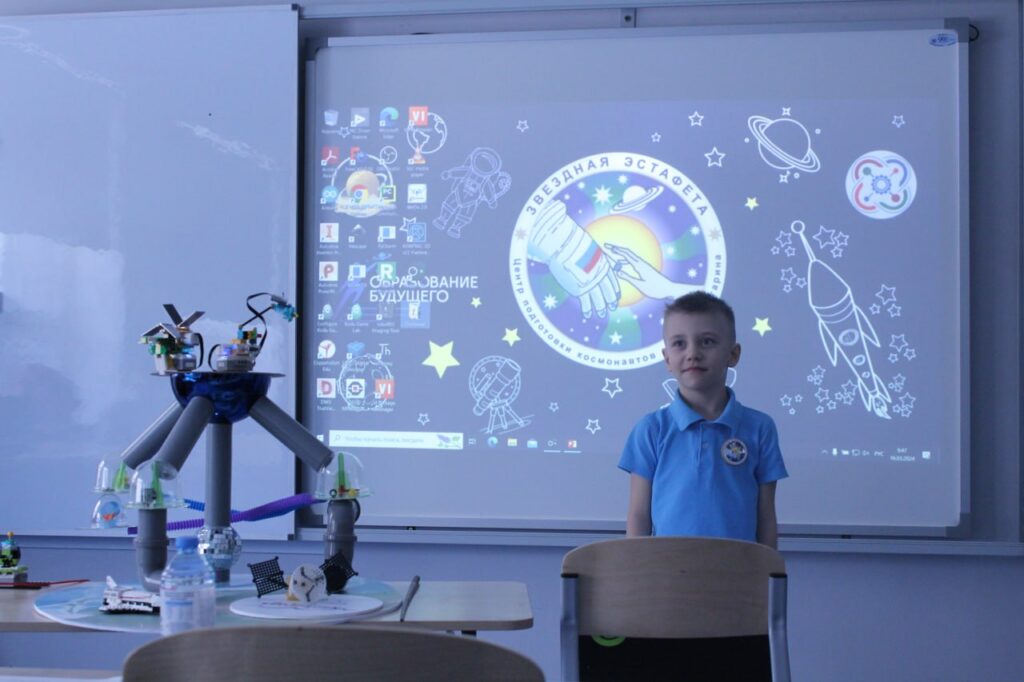
10 декабря 2025 года — 15 марта 2026 года
FINAL (second stage)
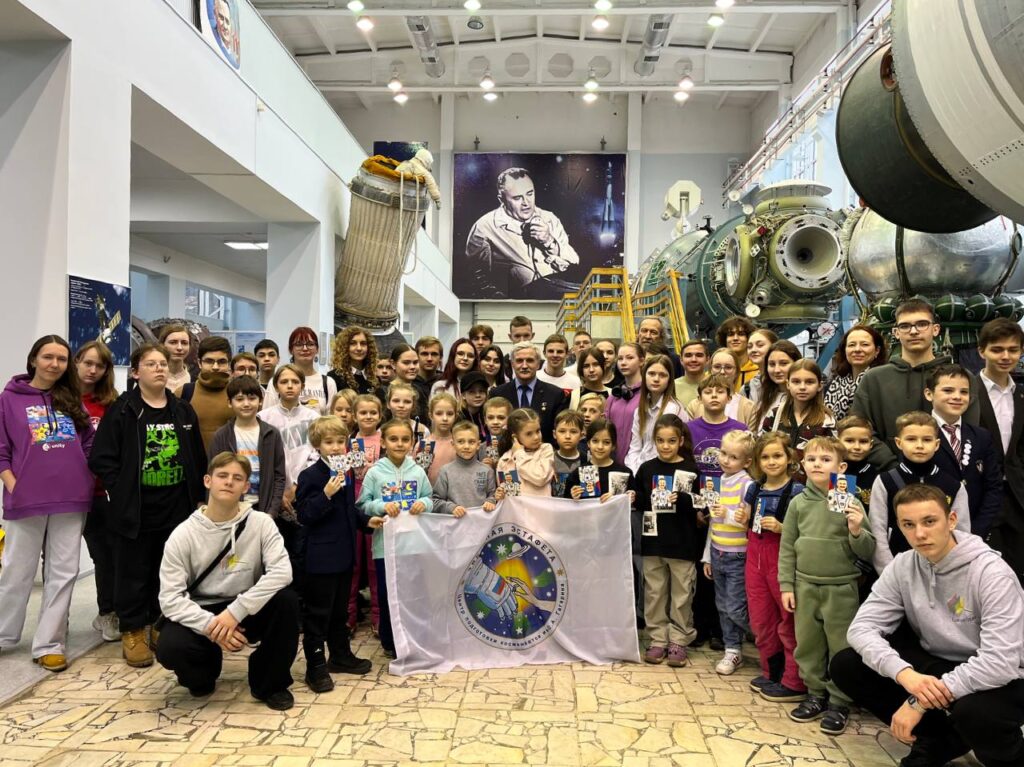
24 — 28 апреля 2026 года
Проводится в форме публичной защиты конкурсных работ/проектов в очном формате в Детском технопарке «Кванториум» г. Королёв и во Дворце Пионеров на Воробьёвых горах г. Москвы

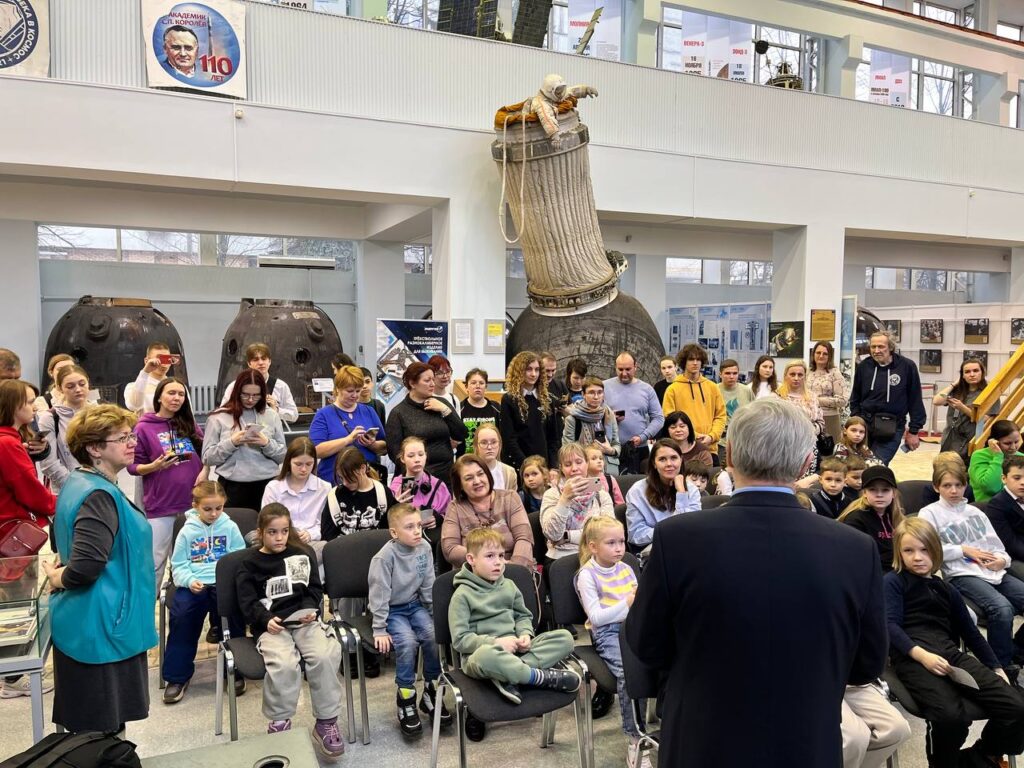
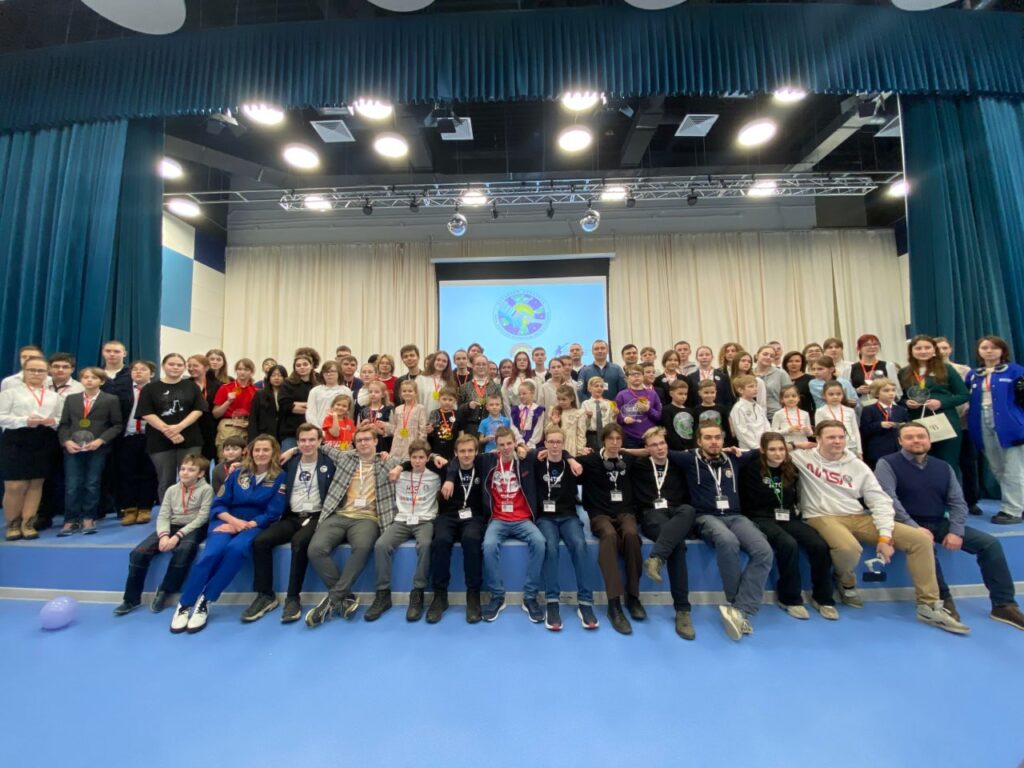
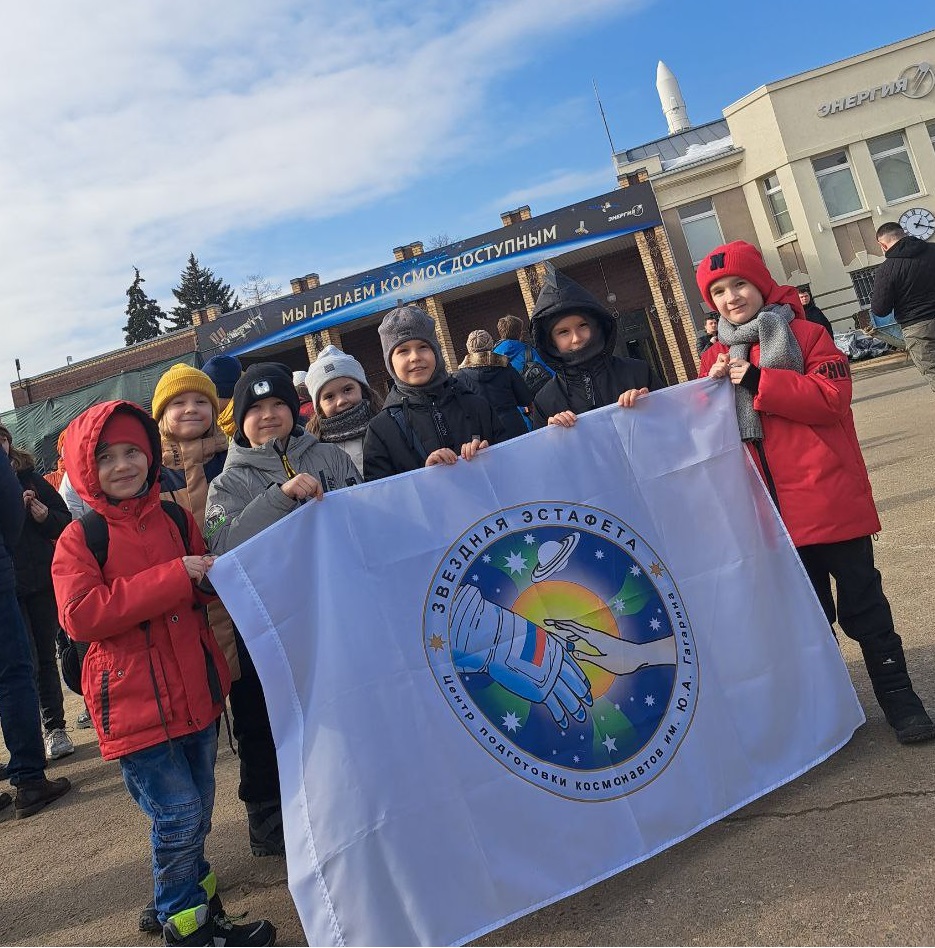

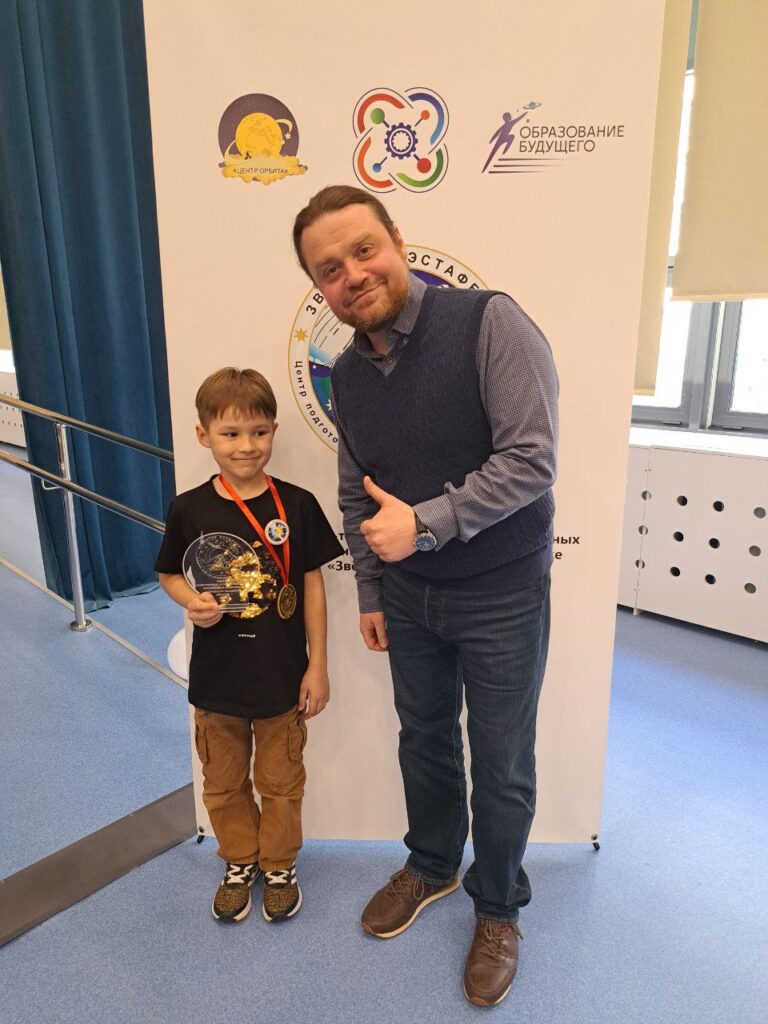
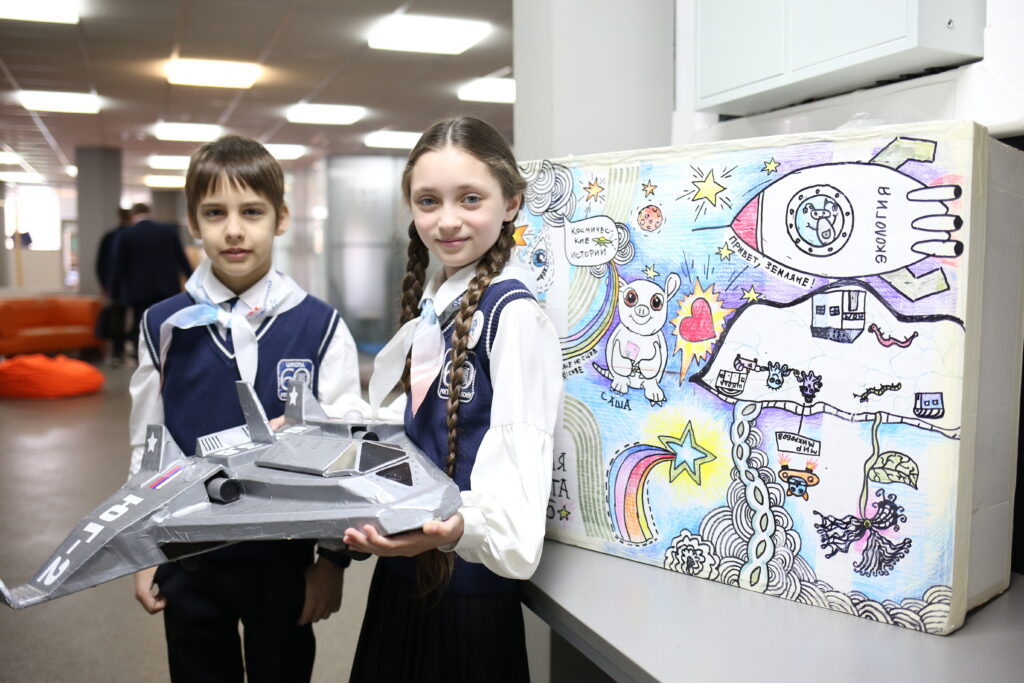
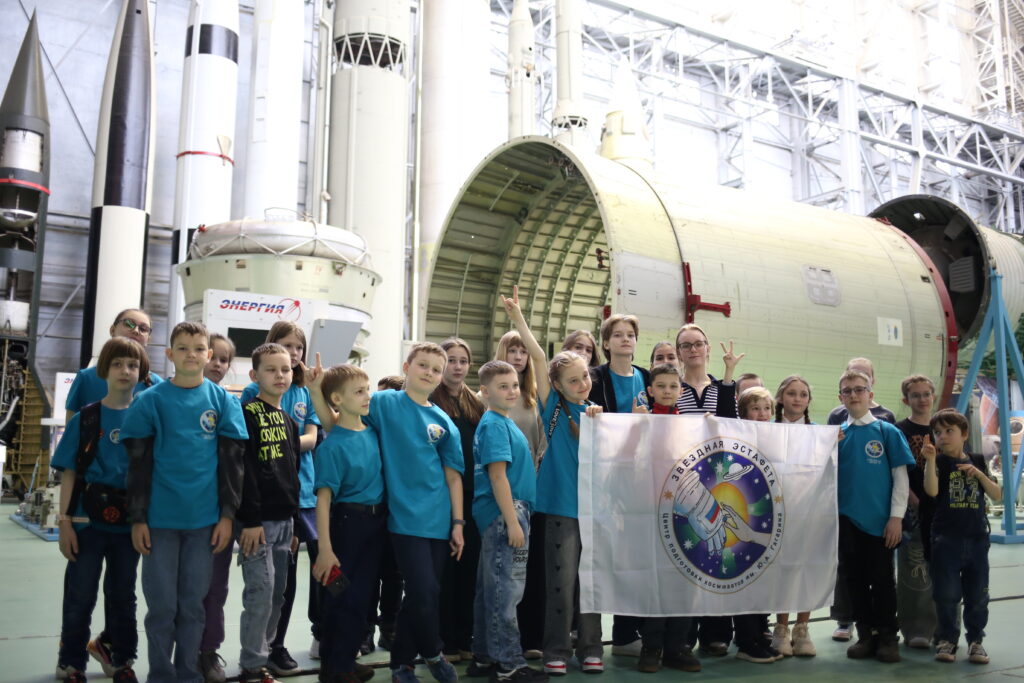
Вебинар №1
Как подготовить проект на конкурс Звёздная эстафета?
Знакомство с секциями и номинациями
Вебинар №2
Инженерный и исследовательский проект. Что там должно быть?
Competitive works/projects on cosmonautics and in the fields related to the exploration and development of outer space are submitted to the Contest by sections (each participant/team of participants can perform in one or several sections and nominations of the Contest):
SECTION #1. Scientific and Technical Section
Nomination No. 1. Manned space complexes and systems
- Prospective manned space programs;
- Manned lunar exploration and deep space missions;
- Reusable manned transportation space systems;
- Internal layout of modules of the Russian orbital station;
- Prospective spacesuits for working on the surface of other planets;
- Scientific and applied research on board the International Space Station and the future Russian orbital station;
- Off-planet manned science bases
Nomination #2. Satellites and automatic interplanetary stations
- Design, fabrication and testing of spacecraft in Earth orbit;
- Satellite platforms
- Inter-satellite communications
- Laser technologies for data transmission between satellites
- Swarm interactions
- Interplanetary probes for the study of comets, asteroids, planets
- Scientific research and experiments on board satellites
- Automated helper satellites to support astronauts' work in outer space.
Nomination #3. Rocket complexes and space robotics
- Design of an ultra-light launch vehicle
- Design of the reentry system for launch vehicle stages;
- Perspective technologies of spaceport construction;
- Advanced rocket engines;
- Robotics systems to support the activities of astronauts in space flight (development of own project is welcome): robots-assistants, robots-explorers, methods of robot control;
- Planetary exploration by rovers
- Groundwater systems and rock studies of planets, asteroids, and comets.
SECTION #2. Astronomical section
Thematic areas: astronomy, astrophysics, astrobiology, chemistry, geology, space.
Nomination #1. Astronomy and astrophysics
- Studies of objects of galactic and extragalactic astronomy, laws of their
interaction and development.
- Studies of the Moon and Mars as astronomical objects, the possibility of using the Moon to study astronomical phenomena and objects in connection with promising plans for the development of the Moon and missions to Mars from near-lunar orbit.
Nomination #2. Planetary studies: planets, their satellites comets and asteroids
— Исследования объектов Солнечной системы: астероидов, комет, метеорных тел и метеоритов.
— Прикладные исследования объектов Солнечной системы с точки зрения поиска пригодных условий для существования жизни, а также будущего освоения человечеством и добычи полезных ископаемых.
Contest entries/projects on the topic may address:
— любые объекты Вселенной и их группы;
— личный опыт наблюдения небесных тел;
— результаты изучения научных источников, посвященных опыту наблюдения и изучению астрономических объектов.
—Популяризация астрономии среди школьников.
Contest entries/projects on the topic can be "Astronomy Lessons" in any form: video, audio lesson, book, presentation, etc.
SECTION #3. Art section
Номинации:
1. Анимация (2D анимация и 3D анимация)
2. Художественные проекты (комиксы, живопись, графика, инсталляции)
3. Настольные и компьютерные игры
Papers may address the following topics of your choice:
— Малая планета 545985 GALINAERMOLENKO главного пояса астероидов». Как она выглядит? Как её могли бы исследовать космические аппараты?
- "Spectrum-RG telescope explores the universe."
— «65 лет полёту первого космонавта Юрия Алексеевича Гагарина»
- "Astronauts' work on the space station."
- "Kids in Space."
- "Earth remote sensing satellite constellation"
— «Скафандр — космический корабль для работы за бортом орбитальной станции»
- "Vehicles are exploring other planets."
- "Satellites, rockets and planetoids come to life..."
- "How do you deal with space debris?"
- "Interstellar Travel."
— «Циклограмма полёта космического корабля «Восток» 12 апреля 1961»
— «Космонавтика в моей малой Родине»
SECTION #4. Literary and journalistic section
Recommended topics of the competition works/projects:
- "Journey to a small planet 545985 GALINAERMOLENKO of the main asteroid belt". A fantasy story/story about a space mission that Russian schoolchildren are about to undertake to explore a small planet.
- "Letter to a Space Mentor." A letter to your mentor from yourself in the future who has achieved your goals: flying into space, developing a new spacecraft, making astronomical discoveries, creating a new type of movement in space.
- "Article to a popular scientific and technical journal about space". A popular science and technology article about an event, about space technology in the field of astronautics and rocket technology. An article reflecting the author's analysis of the material and depth of elaboration on the chosen topic.
- "Poems about Space". A cycle of poems about astronauts, engineers, testers, spacecraft and space stations.
- "Humanity's Cosmic Home". A discussion in prose or poetic form of what an orbital station of the future will look like.
- Interstellar Travel. Reasoning in prose or poetic form, what will space transportation look like in the future, how will spaceships travel in the future?
— «Как я могу принять участие в развитии Российской космонавтики?»
— «Дневник космонавта. Заметки космонавта из космического путешествия в 2056 году»
— «Космонавтика в моей малой Родине»
SECTION #5. Biomedical Section
Recommended topics of the competition works/projects:
- Space medicine and psychology;
- Designs for medical experiments in spaceflight;
- Prevention tools for future space missions;
- Medical requirements in the selection of candidates for cosmonauts: Yesterday. Today. Tomorrow. Analysis of changes.
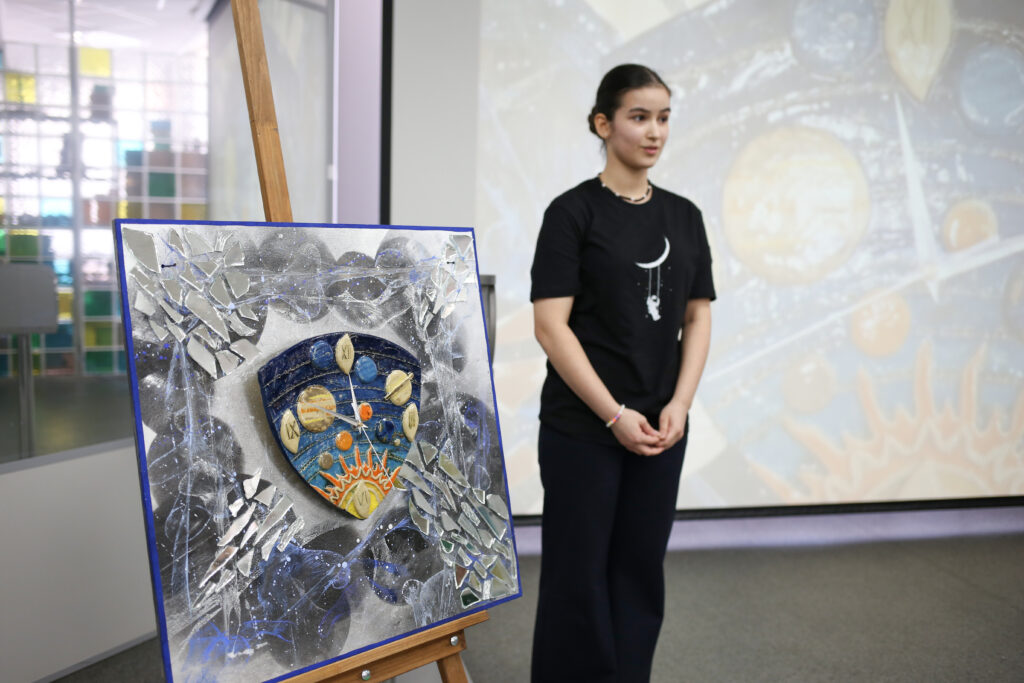
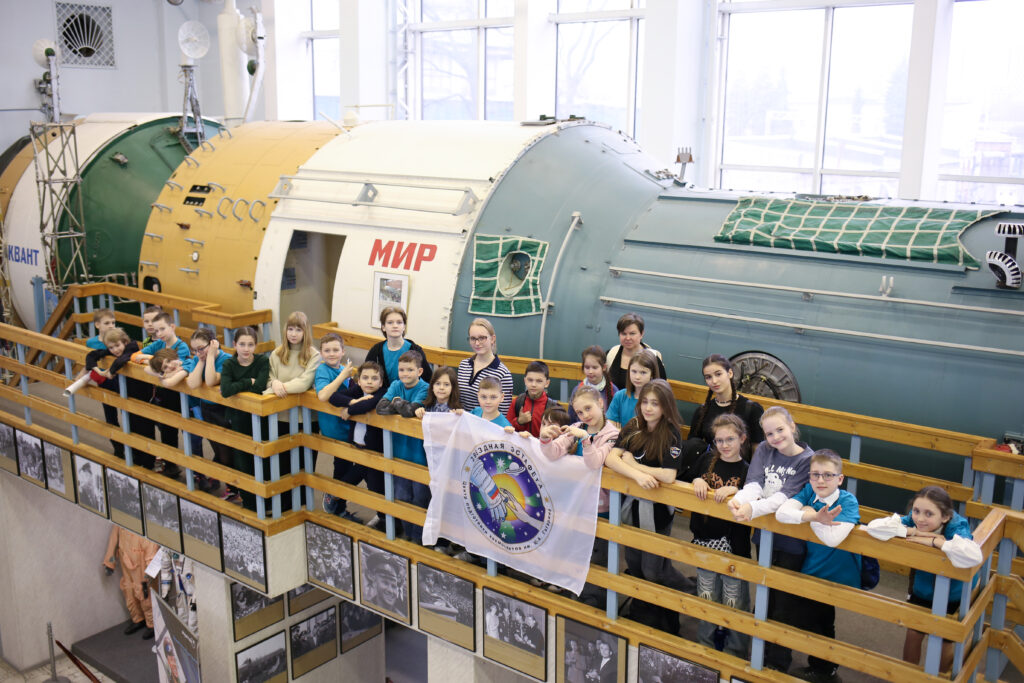
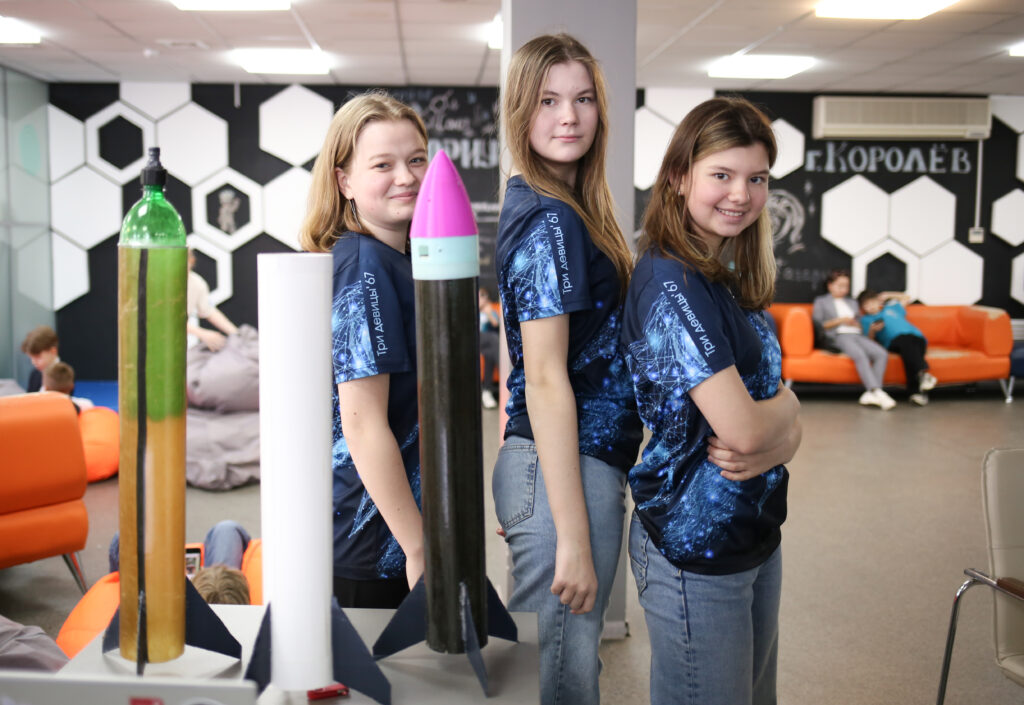
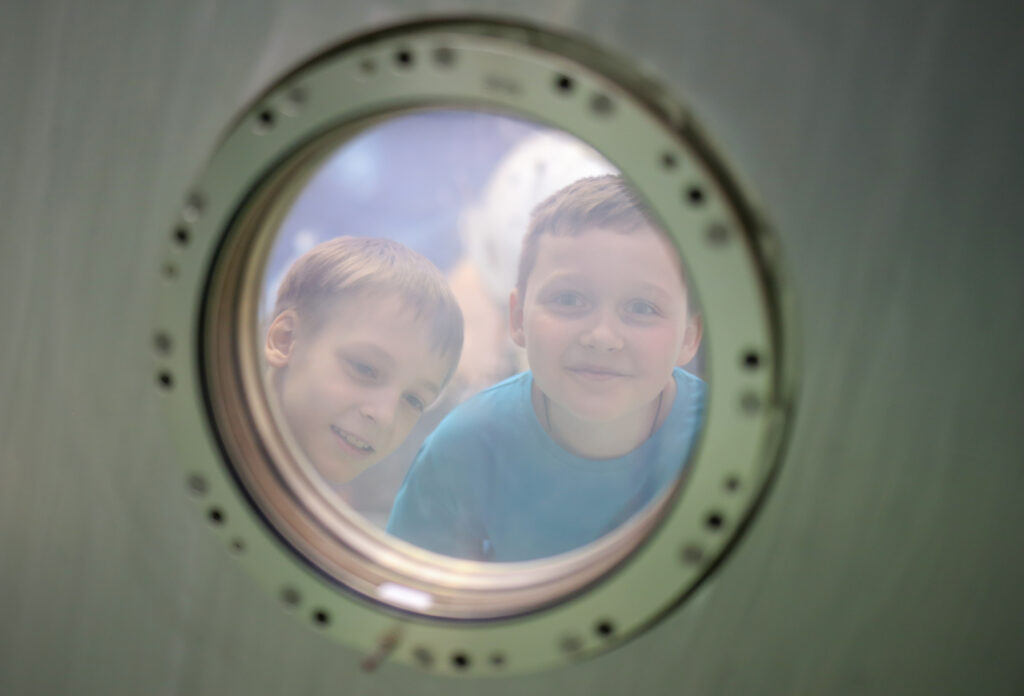
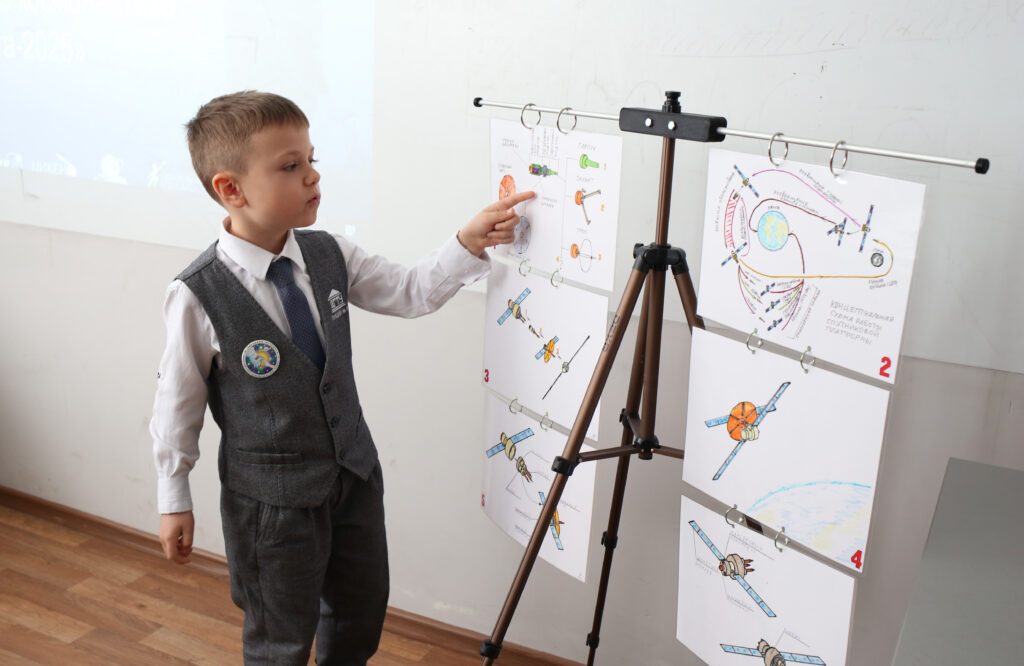
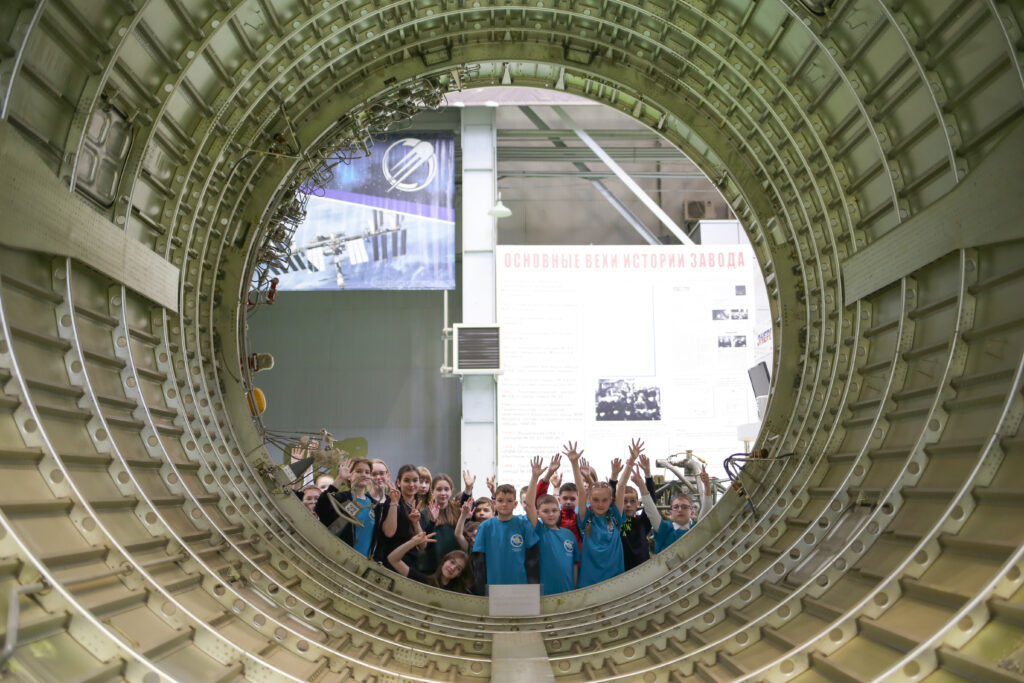
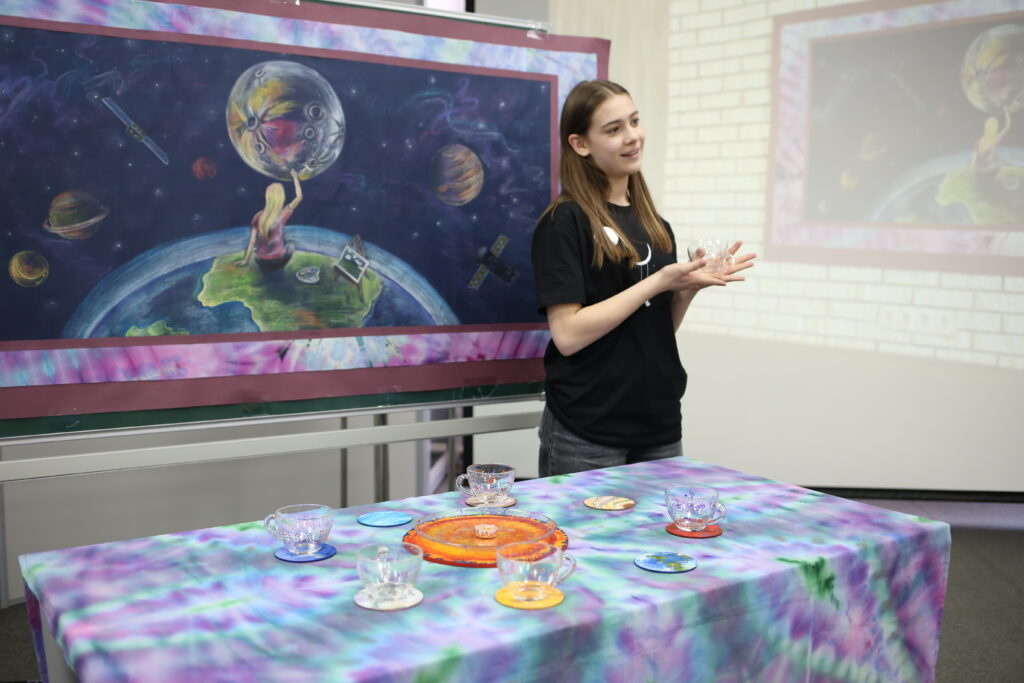
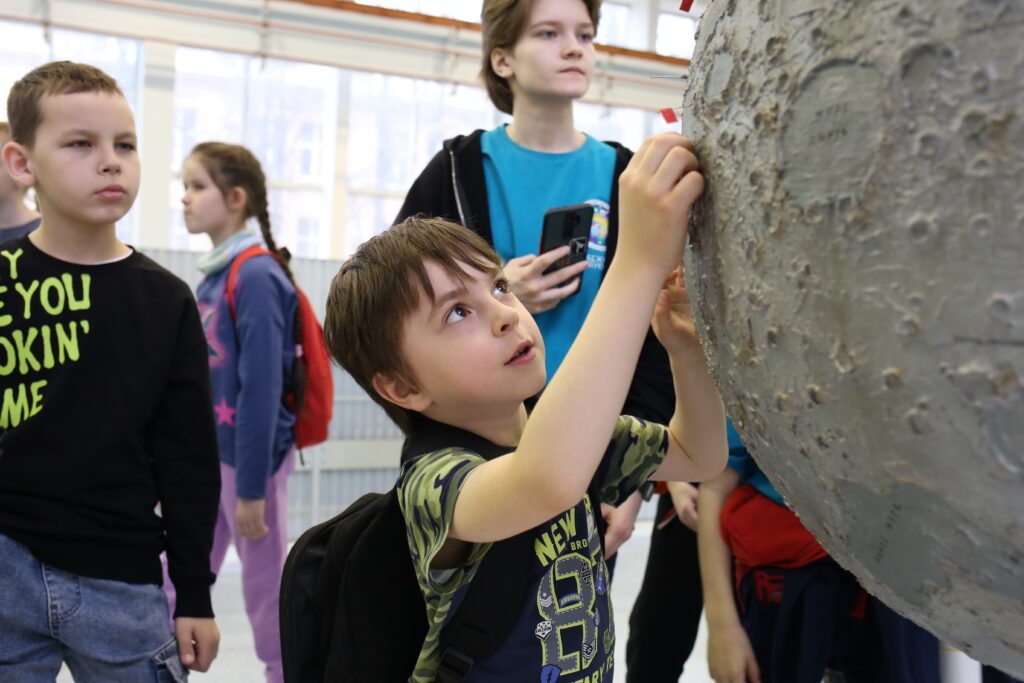
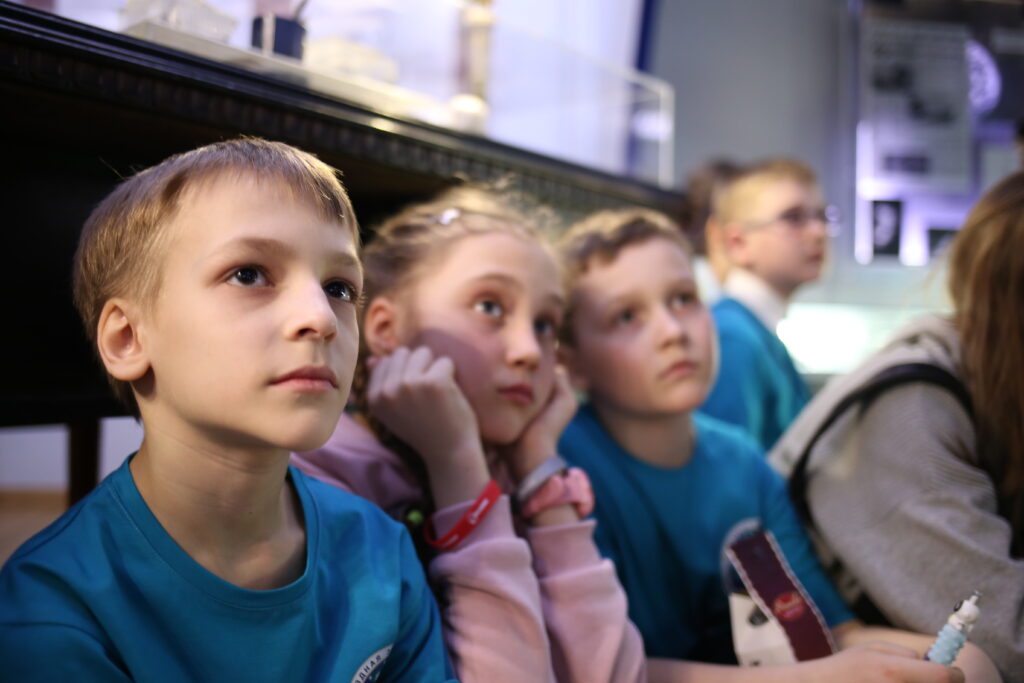
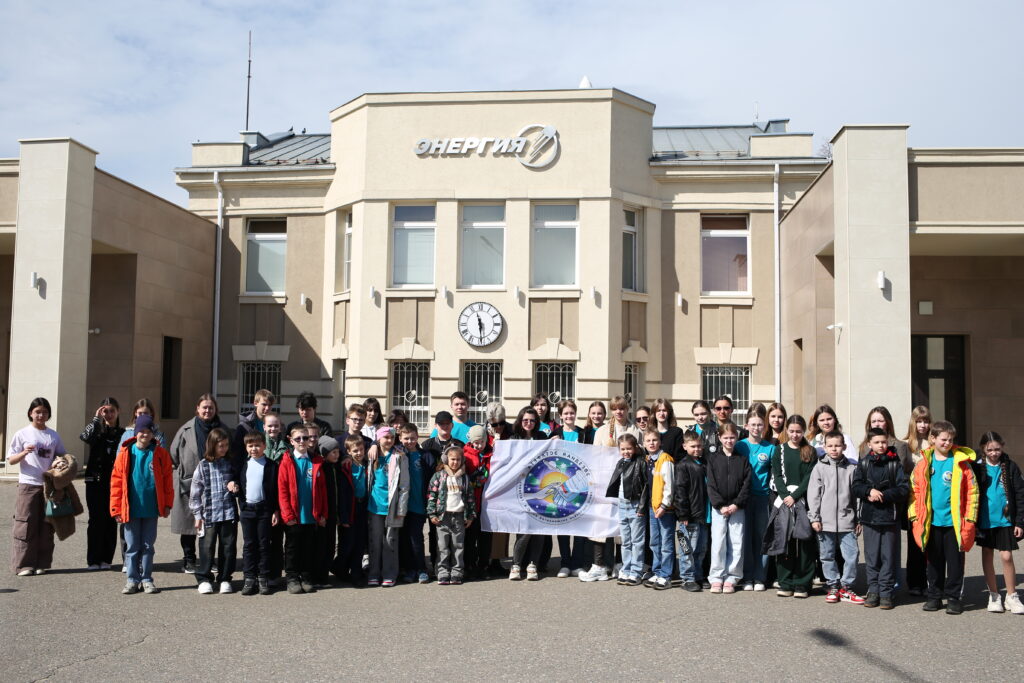
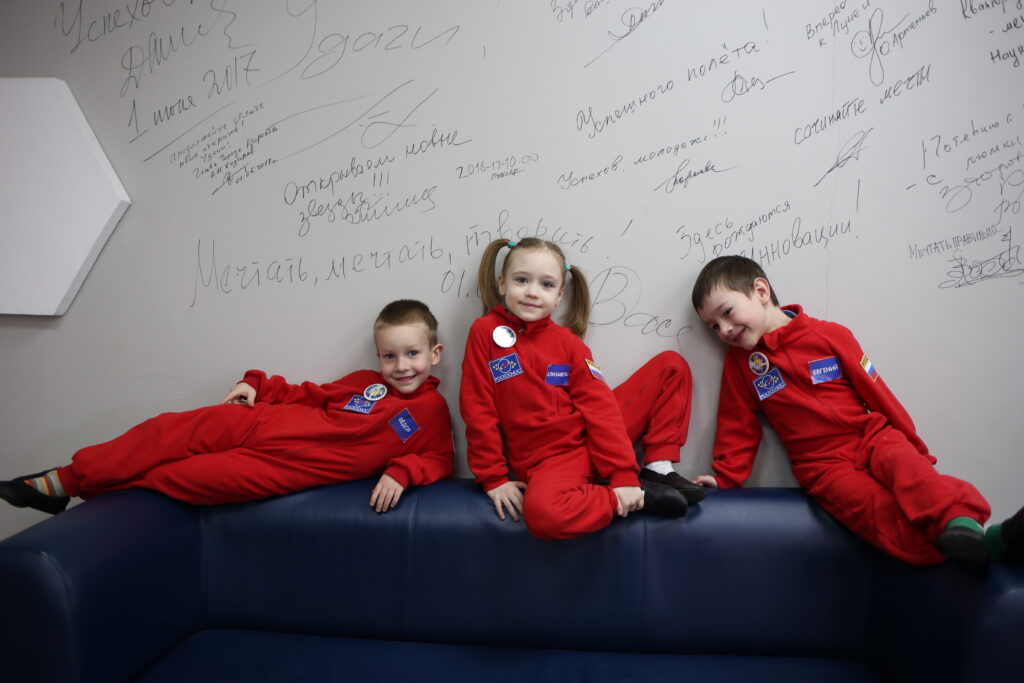
The organizers of the Competition are:
- ANO "Center for Space Engineering and Science Education" (hereinafter referred to as ANO CIKENO);
- Orbit Center, a municipal budgetary institution of supplementary education of Korolev Urban District, Moscow region Center of additional education "Children's Technopark "Quantorium" (hereinafter - Children's Technopark "Quantorium");
- Engineering and Methodological Company "Education of the Future".
The partners of the Competition are:
- Государственная корпорация по космической деятельности «Роскосмос» (ГК «Роскосмос»);
- ФГБУ НИИ «Центр подготовки космонавтов им. Ю.А. Гагарина»;
- ПАО «РКК «Энергия» им. С.П. Королёва»;
- Проектный офис научно-образовательного проекта «Space π»;
- БОУ «Воробьевы горы» (Московский дворец пионеров);
- Инвестиционный Фонд «Рубежи Науки»;
- Ассоциация участников технологических кружков «Кружковое движение».
Контактная информация:
Любые вопросы, касающиеся проведения Конкурса, конкурсной документации и др. могут направляться участниками — бот обратной связи https://t.me/Zvezdnaya_estafeta_bot
Региональные этапы конкурса
| НОМЕР | ГОРОД | УЧРЕЖДЕНИЕ | КОНТАКТЫ | ДАТА ПРОВЕДЕНИЯ РЕГИОНАЛЬНОГО ФИНАЛА |
|---|---|---|---|---|
| 1 | г. Якутск | МБУ ДО «Центр технического творчества» городского округа «город Якутск» | Иванова Саргылана Никитична minobrnauki@sakha.gov.ru https://ctt-yakutsk.obr.sakha.gov.ru/ https://vk.com/itcubeyakutsk https://vk.com/ctt_yakutsk г. Якутск, ул. Горького 98/1 | 28 февраля |
| 2 | г. Новосибирск | МАУ ДО «Детско-юношеский центр «Планетарий» имени космонавта Анны Кикиной» | Сафонова Наталья Юрьевна uo@admnsk.ru http://nebo-nsk.ru г.Новосибирск, Ключ-Камышенское плато, д.1/1 | |
| 3 | г. Славянск-на-Кубани | МАУ ЦДО города Славянска-на-Кубани муниципального образования Славянский район | Неделько Сергей Александрович minobrkuban@krasnodar.ru https://slavcdo.profiedu.ru/ г. Славянск-на-Кубани, Троицкая ул, дом № 271А | |
| 4 | г. Севастополь | ГБОУ ДО «Балаклавский дом детского и юношеского творчества» | Протасова Надежда Анатольевна do@sev.gov.ru bddiut@sev.gov.ru https://vk.com/club76866825 г. Севастополь, ул. 7 Ноября, д. 5 | |
| 5 | г. Москва | ГБОУ «Воробьевы горы» | Белова Елена Павловна mdp.cosmos@mailvg.ru https://vk.cc/cTC457 г. Москва, ул. Косыгина, д.17, корп.3 | |
| 6 | г. Ростов-на-Дону | МАОУ «Школа № 60 имени пятого гвардейского Донского казачьего кавалерийского Краснознаменного Будапештского корпуса» | Буданова Наталья Олеговна pri@rostovobr.ru https://school60rd.com/ г.Ростов — на — Дону, Зорге 13Б | |
| 7 | г. Красноярск | АНО «Красноярский детский технопарк «Кванториум» | Трофимова Татьяна Владимировна mon@krao.ru https://vk.com/kvantorium24 г. Красноярск, ул. Дубровинского, 1и | |
| 8 | г. Кемерово | ФГБОУ ВО «Кемеровский государственный университет» МБОУ «Лицей №23» | Грицкевич Татьяна Игоревна recep@ruobr.ako.ru https://vk.com/kemsu_ru г. Кемерово, пр-т Советский 73 https://vk.com/lyceum23kem г. Кемерово, ул Ворошилова 10Б | |
| 9 | г. Новомосковск | ЦДО ТУЛЬСКОЙ ОБЛАСТИ «СОЗВЕЗДИЕ» | Николаева Наталья Викторовна MO_TO@TULAREGION.RU Ludmila.Sorokina@tularegion.ru https://vk.ru/sozvezdie71 https://t.me/sozvezdie71 г. Новомосковск, ул. Кирова, д.18 | |
| 10 | г. Владикавказ | ГБУ ДО «Школа космонавтики им. Р.В. Комаева» | Солаева Елена Валериановна cosmoschool-vld@yandex.ru http://schoolcosmo.ru/ г. Владикавказ, ул. Кирова, 14. | |
| 11 | г. Магадан | ЦЦОД «IT-куб» МАОУ «СОШ с УИМ №15» | Афанасьева Регина Михайловна obrazovanie@magadangorod.ru https://vk.ru/club211547292 г. Магадан, ул. Колымская, д. 9 | |
| 12 | г. Витебск Republic of Belarus | Учреждение образования «Витебский государственный университет имени П.М. Машерова» | Денисенко Татьяна Александровна info@mail-vsu.by vsu.by Республика Беларусь, г. Витебск, пр-т Московский, 33 | |
| 13 | г. Смоленск | Региональный центр выявления поддержки и развития способностей и талантов у детей и молодежи Смоленской области «Смоленский Олимп» | Володченкова Ольга Анатольевна smol.olimp@yandex.ru https://smololimp.ru/ г. Смоленск, ул. Парковая, д. 20 | |
| 14 | г. Казань | Муниципальное бюджетное общеобразовательное учреждение «Лицей №35 — образовательный центр «Галактика» Приволжского района г.Казани | Григорьев Игорь Петрович mon.tatarstan.ru https://vk.com/sunny_lyceum35 Казань, ул.Гарифа Ахунова 10 А | |
| 15 | г. Санкт-Петербург | Государственное бюджетное нетиповое образовательное учреждение «Санкт-Петербургский городской Дворец творчества юных» | Жуковская Ирина Яковлевна Ронкина Анна Юрьевна kobr@gov.spb.ru https://www.anichkov.ru/ https://vk.ru/anichkov_palace г. Санкт-Петербург, Невский пр., д. 39, литер А | |
| 16 | г. Калининград | Детский технопарк Кванториум | Ермакова Светлана Сергеевна minobr@gov39.ru http://kvantorium39.ru/ https://vk.com/kvantorium39 г. Калининград, ул. Гайдара, 6 | |
| 17 | г. Симферополь | Муниципальное бюджетное общеобразовательное учреждение «Лицей №35 — образовательный центр «Галактика» Приволжского района г.Казани | Кичижиева Марина Валерьевна edu@monm.rk.gov.ru https://mancrimea.ru/home https://vk.com/public217233123 Республика Крым, г. Симферополь, ул. Гоголя , 26 | |
| 18 | г. Южно-Сахалинск | Государственное автономное образовательное учреждение дополнительного профессионального образования «Институт развития образования Сахалинской области» имени Заслуженного учителя Российской Федерации В.Д. Гуревича | Ковач Александра Александровна minobr@sakhalin.gov.ru https://kvantorium.sakhalin.gov.ru/ https://t.me/kvantorium_65 https://vk.com/kvansakh г. Южно-Сахалинск, ул. Пограничная, 42. РРЦ «Кванториум» | |
| 19 | г. Королёв | «Детский технопарк «Кванториум» МБУДО «Орбита» | Овчинников Илья Вячеславович https://t.me/Zvezdnaya_estafeta_bot https://centrorbita.ru/ Московская область, г. Королёв, ул. Пионерская, д. 34 |
